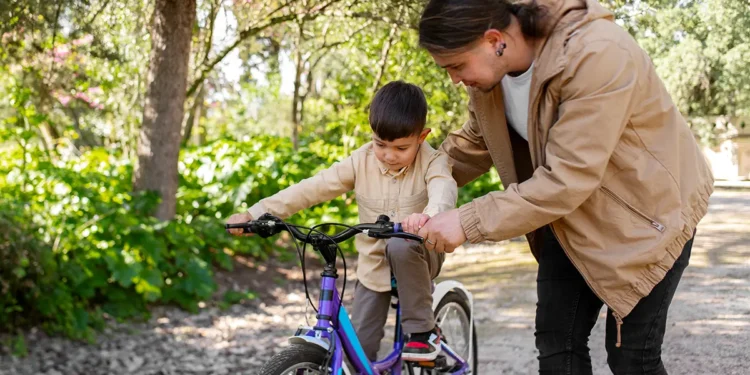It’s widely accepted that helicopter or lawnmower parenting styles can be harmful for the welfare and development of children, limiting their ability to problem solve. Yet what specifically are the traits on show, and how can you ensure you aren’t falling into the trap of being one?
There are few different types of parenting styles as potentially negative as either helicopter parenting or lawnmower parenting. Though well-intentioned, each type of parent can hinder a child’s independence and resilience. Understanding and moving away from these styles could benefit your child’s overall development.
Helicopter Parents
Helicopter parents supervise their children closely, constantly monitoring activities, schoolwork, and social interactions, believing their presence ensures their child’s success and safety, which can stifle autonomy.
Despite good intentions, it’s believed that such an approach can impede a young person’s problem-solving skills, whilst increasing anxiety, as they never learn to cope with challenges on their own.
Lawnmower Parents
Lawnmower parents, on the other hand, remove obstacles for their children, ensuring they never face discomfort or difficulty, much like helicopter parenting. This could be in the form of doing tasks for them, completing assignments, or repeatedly intervening in social conflicts.
While they aim to create stress-free environments, when constantly shielded from adversity, children miss out on important learning experiences.
Your Own Interactions
Consider how you interact with your child in everyday situations. If you’re worried you are too close to helicopter or lawnmower parenting, there are measures you can take to relax your safeguarding.
Encourage Problem-Solving
Allow your children to face challenges and figure out solutions on their own – offering guidance, if necessary – but let them take the lead.

Foster Independence
Gradually increase your child’s responsibilities starting with small tasks and building up to more significant ownership of tasks over time.
Set Boundaries
Make things clear for when you will step in to help and when your child must handle things themselves, helping them understand that they can rely on you for support, but they’re also capable of managing on their own.
Promote Resilience
Encourage your child to view setbacks as opportunities for growth, teaching them that failure is a natural part of learning and that perseverance is key to overcoming obstacles.
Model Appropriate Behaviour
Show your child how to handle stress and challenges by demonstrating these behaviours yourself. Children learn a lot by observing their parents, so be a positive role model.
In summing up, while the urge to protect your child is natural, and shows love and protection, stepping back and allowing them to navigate life’s challenges is one of the most valuable gifts you can give.









